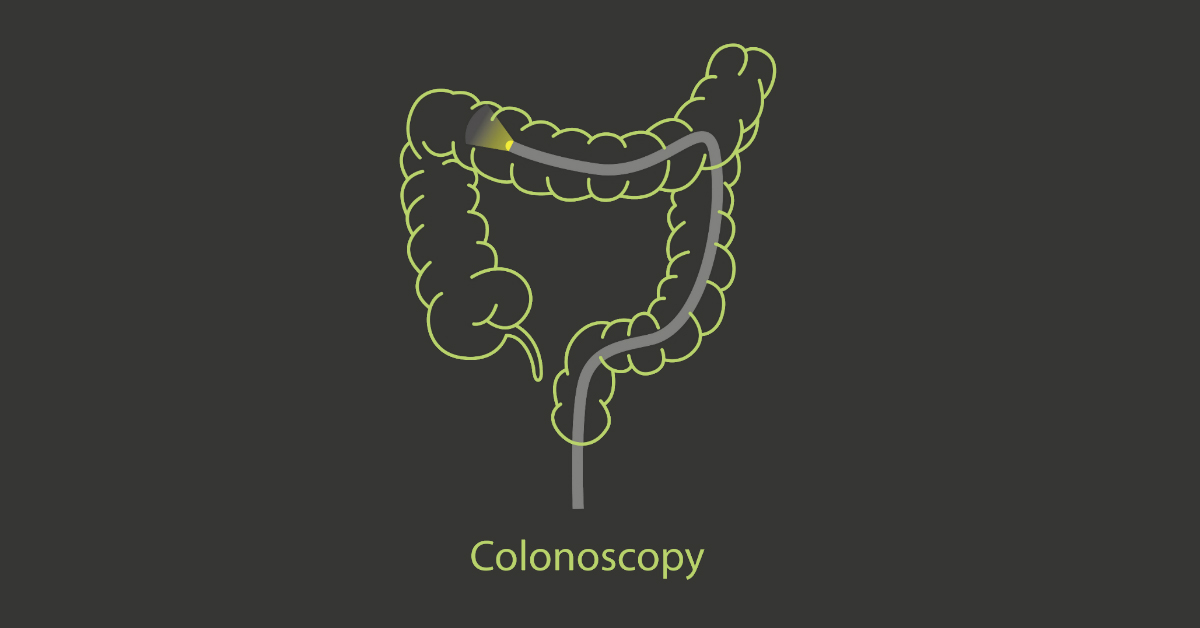
Colonoscopies: You Have Questions, We Have Answers
-
Updated: May 18, 2021
Getting a colonoscopy isn’t on anyone’s fun list, but the test can help you and your doctor assess your colon health and cancer risk. Here’s what you should know about this potentially lifesaving screening test.
Who should be screened for colorectal cancer?
According to the U.S. Preventive Services Task Force, individuals should begin screening for colorectal cancer at age 45. You might need to start earlier if you have a family member with colon or rectal cancer. A history of colon polyps, or radiation to the stomach or pelvic area, can mean earlier screening too. Talk to your doctor about a screening schedule that is best for you.
Why is screening so important?
Screening can help detect precancerous polyps that can be removed before they become cancer. In other words, it can help prevent you from ever getting colorectal cancer, which is the best scenario. Screening can also help detect colorectal cancer early, while it is still localized and before it spreads. This is important because when colorectal cancer is found early, it has a very high cure rate. However, if colon cancer is detected late (for example, if a person does not go for screening in time), the chances for cure are much lower and, in some cases, the cancer cannot be cured.
Is a colonoscopy my only screening option?
No. There are several screening options for colorectal cancer. Visual exams, such as a colonoscopy, look at the structure of the colon and rectum. They check for any abnormal areas and generally only have to be done every 10 years. Stool-based exams check feces for signs of cancer. These tests are less invasive, but they are also not as definitive at detecting precancerous polyps, and they have to be done more often (every 1–3 years). And, if a stool-based exam detects something suspicious, the next step is a colonoscopy.
One of the main advantages of a colonoscopy is that it can detect polyps—precancerous growths that may eventually become cancer. A doctor can remove polyps during a colonoscopy.
How do I prepare for a colonoscopy?
The colon must be completely clean for the screening to be accurate, and there’s only one way to make that happen.
Usually, you’ll be placed on a clear liquid diet and you will be given a special drink to clear your bowels the day before a colonoscopy. There are ways to make the process easier. Don’t drink the prep all at once (but do finish it all). And stay near the bathroom—you’ll need to use it. All that said, the prep is really not as bad as it sounds.
Keep in mind that your doctor might have you change your medication schedule to prep for the procedure too. So be sure to talk to your doctor about any questions you have.
What happens during a colonoscopy?
You’ll be asleep with help from anesthesia so you won’t know what’s going on.
Your doctor will insert a small, flexible, lighted tube with a camera (called a colonoscope) into your rectum and guide it to the other end of your colon. The colonoscope releases small puffs of air or carbon dioxide so that your doctor can view the inside surface of the colon and rectum. The whole procedure lasts about 30 minutes. However, it does take a while for the anesthesia to completely wear off. You will not be allowed to drive home after receiving anesthesia, so you’ll need someone to drive you home when the test is done.
Most people don’t feel any pain during a colonoscopy. However, some people have mild cramping or bloating afterward.
Learn more about what happens during a colonoscopy and how it can prevent colon cancer.
What if the colonoscopy shows something abnormal?
If a small polyp or abnormal tissue is found, your doctor will probably remove it right then. If it’s too large to remove completely, a small piece will be taken for testing. The lab work will help determine if you need more testing or treatment.
How do I schedule a colonoscopy at Fox Chase?
It’s easy. Request an appointment or screening online, or call 888-369-2427 to set up your screening.
